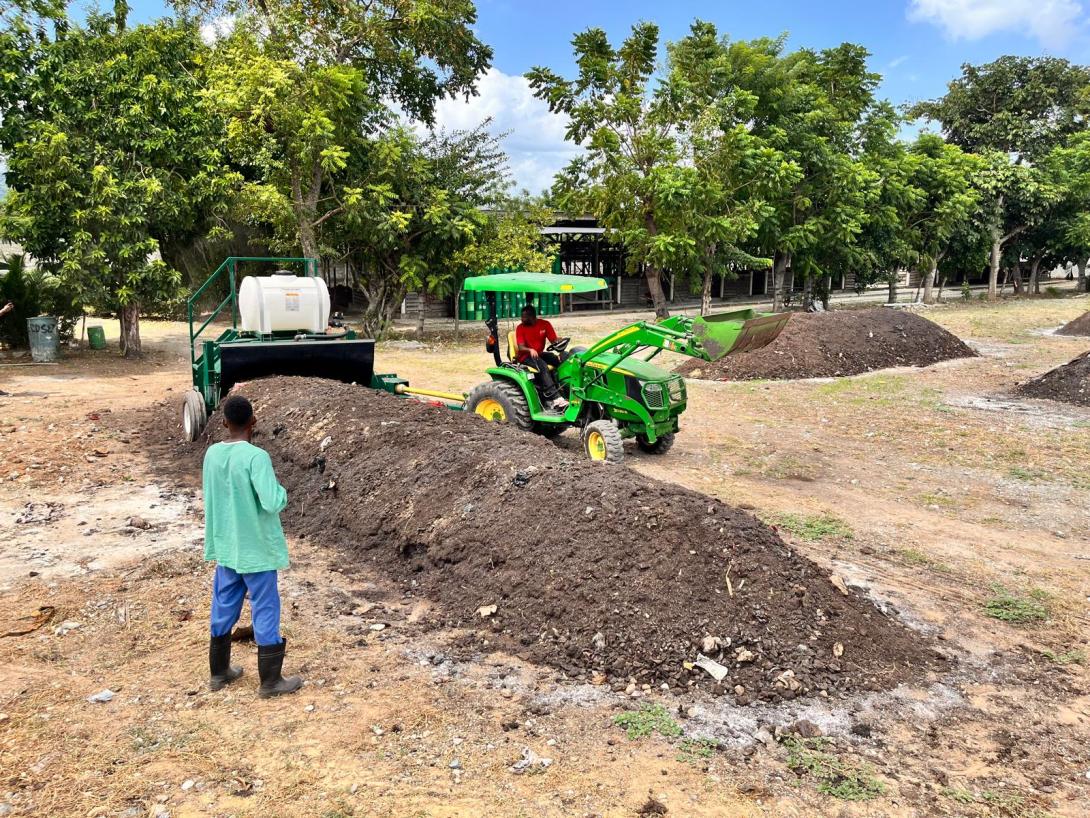Windrow Composting: SOIL’s Got a Brand New Turner!

Windrow turner and tractor at the SOIL composting site in Mouchinette 2024
Over the past decade, the SOIL research and operations teams have experimented with windrow composting as a way to expedite our composting process.
When we first started conducting research on windrow composting methods in 2022 we had about 8,000 people on the EkoLakay service. Since then we have used our research findings and increased understanding of windrow composting to be able to grow the EkoLakay service and provide both safe sanitation and waste management services for over 19,500 people.
Not only does windrow composting allow us to grow our operations without needing to build lots of new and fancy composting infrastructure–it’s also cheaper. SOIL’s comparative cost analysis of windrow vs. bin composting shows that the overall reduction time and minimal structure requirements for windrow composting makes it over 50% less expensive than bin composting.
With the addition of our new turner, these costs are projected to decrease further as we scale our operations.
Meet SOIL’s brand new turner!
Our new turner machine is hard at work each and every day, helping us regularly rotate our windrow piles. Before this piece of machinery, it took SOIL’s composting workers intense amounts of time to manually turn and rotate the windrow piles with shovels. Replacing this manual labor with machine labor takes just a little bit of the hard work off the (very strong) shoulders of our composting team.
How does Windrow Composting Work?
Imagine long, narrow piles of organic material at the SOIL composting site.
These piles are called windrows.
To make the magic happen, windrows need three key things:
Air: The piles are regularly turned to let oxygen in, which helps the microbes break things down.
Moisture: The mix needs just the right amount of water—not too dry or too soggy.
Heat: As the microbes chow down on the waste, they generate heat, which helps kill off harmful germs and weed seeds.
What we get at the end is a beautiful, dark KonposLakay that’s full of nutrients and ready to breathe life back into the soil.
From providing in-home toilets with the EkoLakay service to researching and advancing composting methods, SOIL is dedicated to stewarding a zero-waste sanitation system that can both help protect Haitians from waterborne illnesses and support the regeneration of depleted soils.
Read more about SOIL’s adventures in windrow composting in our 2022 blog here.